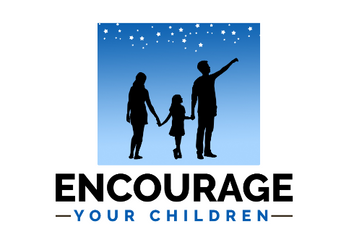
Listen to the article:

Thoughts of your own childhood will probably reveal good memories and the unpleasant bad ones. Remember how your mom would always use your full name when she was upset with you, or give you “the look” when you disappointed her so much she was at a loss for words. But, those are minor compared to the comments that still make you cringe, for example, “I told you so, that’s why” or “Just wait till your father gets home!”
Remembering those phrases that we despised so much growing up and promised never to do to our own kids, but now, as parents ourselves, we are guilty too.
Although we have a plethora of parenting resources in the form of books, online blogs, YouTube videos, etc., research indicates that many of us do exactly what our parents did, regardless of how adamantly we swore we never would.
- Ask Questions: By asking questions rather than making comments you’ll gain better insight of your child’s feelings and actions. Plus, when you’re listening, you’re not at risk of saying something you’ll regret.
- Apologize: If you mess up and make a harsh comment, acknowledge and apologize to your child. This teaches your children the importance of owning your mistakes and shows you don’t think you’re perfect.
- Offer Help: Remember the excitement of watching your toddler take his first step and knowing there would be countless falls before successfully walking? At this stage, you were intuitively tolerant and offered a helping hand again and again. However, as our children grow, we sometimes want to rush them through the process. If kids aren’t given the opportunity to learn at their own pace, they can quickly give up or become critical of themselves. So regardless if your child is 2, 5, or 12, lending a helping hand and words of encouragement will be extremely beneficial.
- Reconnect: If you slip up and make a comment that hurts your child’s feelings apologize and set aside some time to reconnect. This will be instrumental in healing the emotional wound and offer an opportunity to reconnect. The better we know our children as young individuals, the more understanding of each other transpires.
In the chaos of life, stress levels can rise in a matter of hours and with the undone checklists, it’s easy to neglect yourself. However, these heightened unpleasant emotions can result in saying things you regret, or responding more negatively than you would under normal circumstances. For this reason, set aside time each day for self-care to decompress. Also, daily exercise and a healthy diet increase energy and balance moods, not to mention it enhances your overall well-being. Remember, just like you learned good and bad habits from your parents, your kids are learning from you.
Thought Starters:
- Ask Questions Instead of Making Statements: Instead of saying, "I told you so," you can start with, "Can you tell me what you learned from this situation?" This encourages open dialogue and understanding of your child's perspective.
- Apologize When Necessary: If you've made a harsh comment, you can think about how to apologize and acknowledge your mistake, such as, "I'm sorry I said that, it was unkind. How can we make things better?"
- Offer Help and Encouragement: When your child faces challenges, consider offering support and encouragement. For example, you might think, "How can I help my child navigate this difficult task and provide words of encouragement along the way?"
- Reconnect After a Conflict: After a disagreement or hurtful comment, think about setting aside time to reconnect with your child. You can reflect on how to rebuild the emotional connection and understanding.
- Prioritize Self-Care: Recognize the importance of self-care in your daily routine. Reflect on how you can make time for self-care activities like exercise and maintaining a healthy diet to manage your stress and emotions positively.
Suggested Questions To Ask Your Child:
- How did that make you feel?
This question encourages the child to express their emotions and helps the parent gain a better understanding of the child's feelings, fostering empathy and open communication.
- Is there anything you'd like to talk about or share with me?
This open-ended question invites the child to initiate a conversation about any topic that might be on their mind, emphasizing the parent's availability for discussion.
- How can I support you in this situation?
By asking this question, the parent shows their willingness to help and be a source of support for the child, reinforcing the idea that they are there to assist and guide when needed.
- What would you like to accomplish or learn from this experience?
This question encourages the child to set goals and consider the value of their actions and experiences, promoting self-reflection and personal growth.
- Do you have any ideas on how we can improve our communication?
This question involves the child in the process of enhancing parent-child communication, emphasizing that both parties can contribute to a healthier relationship.



